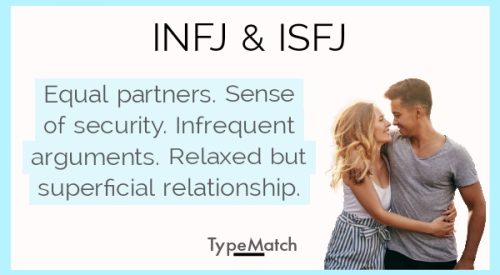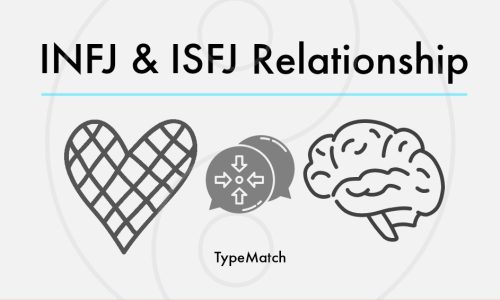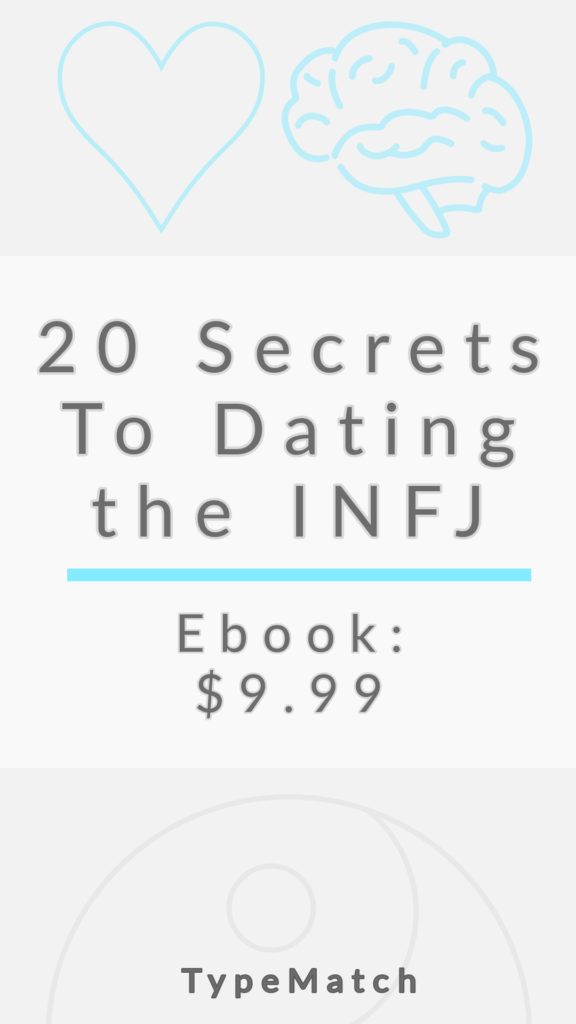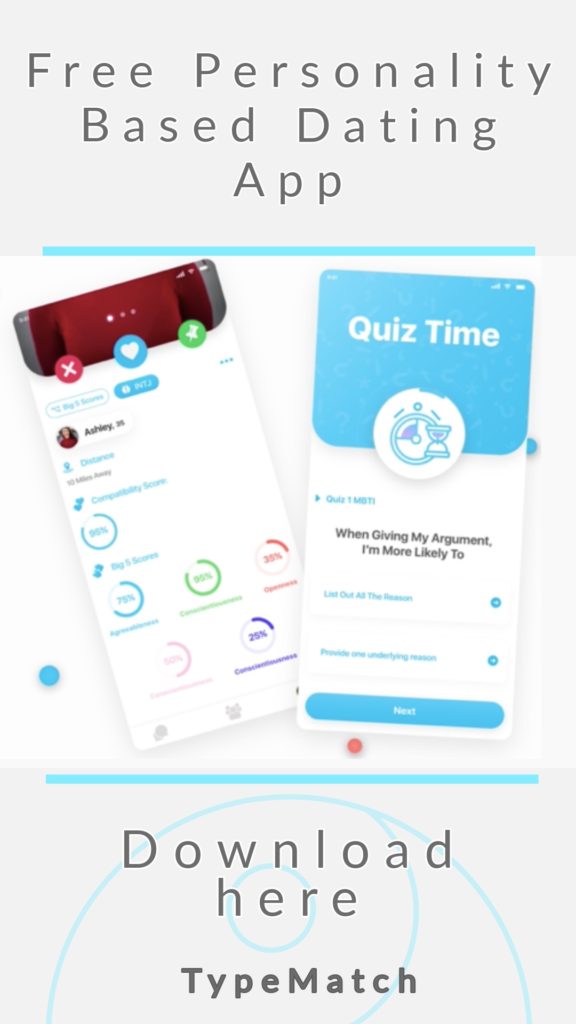INFJ and ISFJ Relationship
Are INFJ and ISFJ Relationships Compatible?
INFJ and ISFJ relationships are called “business” or “look-alike” relationships in Socionics. TypeMatch assigns this match a medium-low compatibility score in our free dating and friendship app based on personality type. Below we explain what makes these two work so well as a partnership but not so well as a couple.
INFJ and ISFJ Attraction
According to Victor Gulenko, INFJs and ISFJs have a relationship of equal partnership where they are not actually friends but more like “fellows”. They find it easy to get along and find their common areas of interest. However, they do not get to know each other on a deep level as they’re not interested in getting close. As a result, it’s not hard for them to lose contact if they stop working together or one person moves.
This couple begins their relationship with initial respect but there is natural distance between them and a degree of formality. They’re moderately comfortable around each other and have a sense of security as the other one doesn’t pose a threat. For example, INFJs and ISFJs usually have different focuses and don’t find themselves competing in the same spheres. However, if they do find themselves in the same position, a power struggle ensues. Usually, though, they resolve the power struggle relatively easily and maintain a calm and shallow relationship.
INFJs are not only rare but can be difficult to get to know, even when dating. They tend to focus on others more than themselves and are great listeners. They are skilled in picking up on red flags but have trouble taking action in the present. As a result, an INFJ relationship is full of paradoxes. If you’re dating or trying to date an INFJ, download this guide with our top 20 pieces of practical advice for dating an INFJ.
Communication
INFJs and ISFJs share half of the same cognitive functions. As a result, they have a common language through which they can communicate. The two easily understand each other and have no barriers to communication. They can say anything and don’t have to worry about offending each other. Additionally, this pair teaches each other interesting things and new skills which benefit each other. Generally, their conversations focus on solving problems together which we will explain further in a following section.
While INFJs and ISFJs don’t argue often, they feel often feel light tension when together. They can relax together only for short periods, as long interactions make them tired. INFJs and ISFJs find they try to imitate each other a little to bridge the gap between their differences. Unfortunately, this means that neither is ever completely themselves and they have to strain to move things forward. Additionally, since they face similar problems in life, they’re usually sympathetic to each other’s struggles. However, when conflict does arise they look critically at each other’s weaknesses and put pressure on each other.

Partnership
INFJs and ISFJs are extremely effective in working together towards a common goal. They make a winning team in business pursuits as long as they maintain a focus on practical action. To be successful, they must first establish a common goal. Then, they must divide responsibilities and do the work separately. Finally, they must come together to review.
This pair is dynamic in problem solving together as their differing view points help the pair see more of the chessboard together. They easily compromise and fall into different roles as each one compensates for the other’s weakest area. They have differences in approach to solving problems, which is why they must split up in terms of implementation. Overall, INFJs and ISFJs shine together when working together on a short term project.
Final Thoughts
Moreover, INFJs and ISFJs bring out each other’s logic and pragmatism. It’s a relationship of low emotion and low passion. They focus on the task at hand since they don’t get close to each other. They’re able to teach each other some interesting things but not really help each other with their problems. Both maintain their own perspectives and don’t budge- making them seem stubborn to their partner. In the end, these relationships are better when the two people are more developed and share common interests. INFJ and ISFJ relationships can be beneficial for self development as they learn to cooperate.

More Resources for INFJs & ISFJs
Sources:
A.V. Bukalov, G. Boiko, “Why Saddam Hussein made a mistake, or what is Socionics”
Ekaterina Filatova “Art of understanding yourself and others”
Eugene Gorenko, Vladimir Tolstikov, “Nature of self”
I.D. Vaisband, publications on Socionics
Laima Stankevichyute “Intertype relations”
O.B. Slinko, “The key to heart – Socionics”
R.K. Sedih, “Informational psychoanalysis”
Sergei Ganin
Valentina Meged, Anatoly Ovcharov
V.V. Gulenko “Criteria of reciprocity”
V.V. Gulenko, A.V. Molodtsev, “Introduction to socionics”







